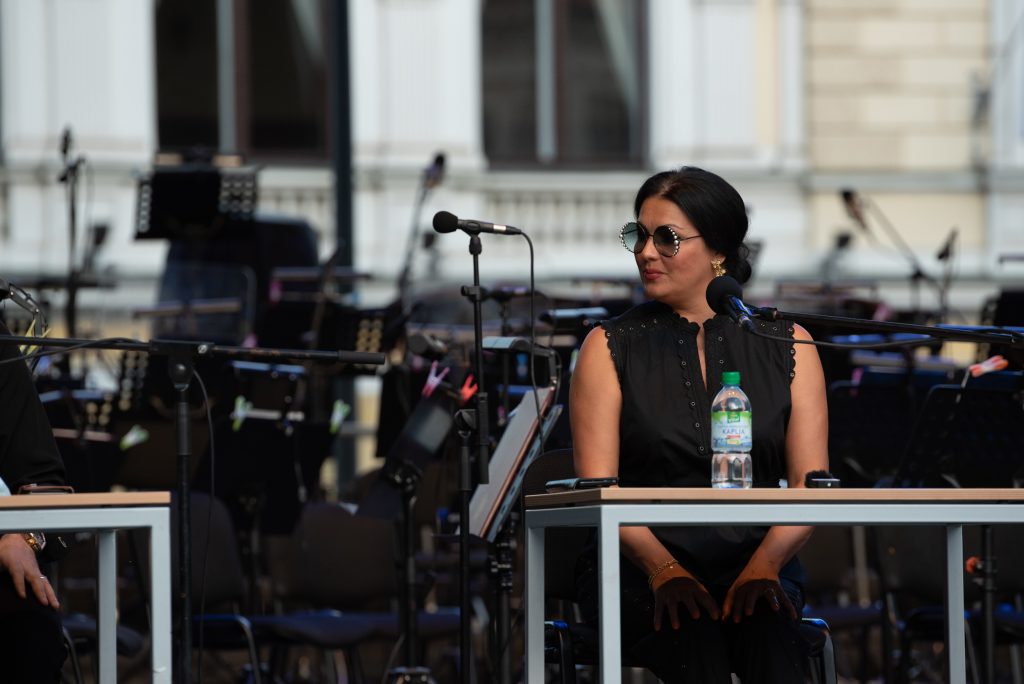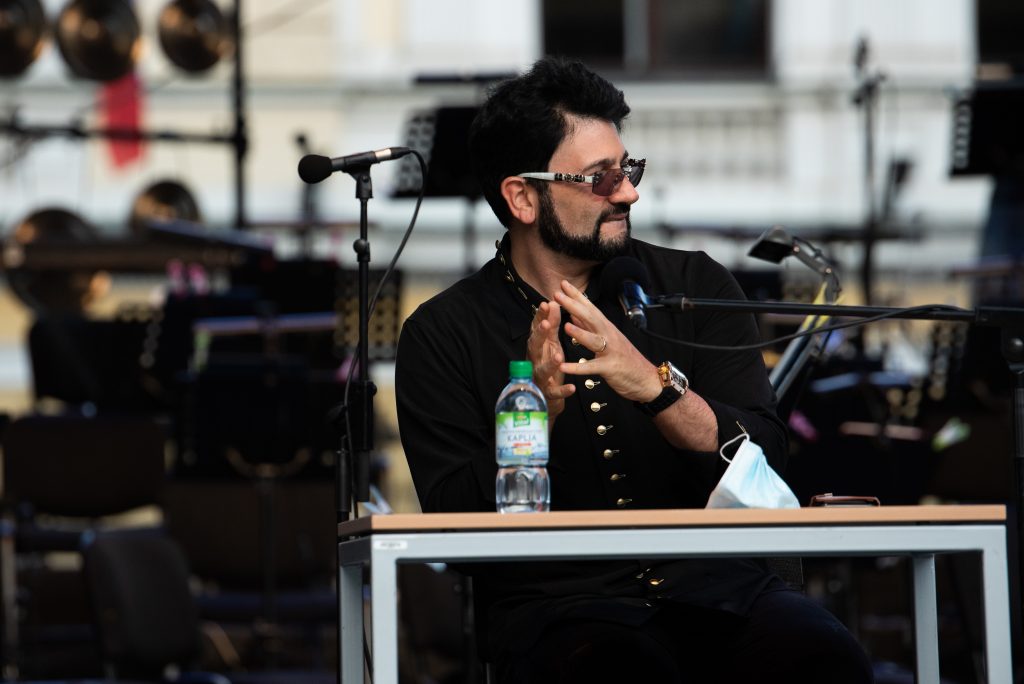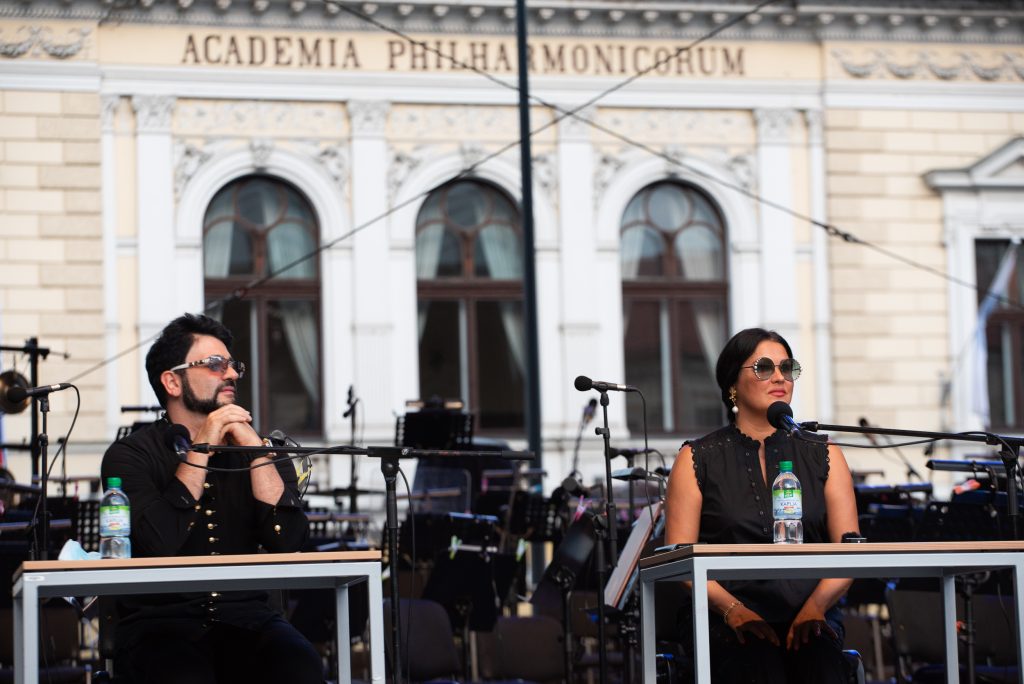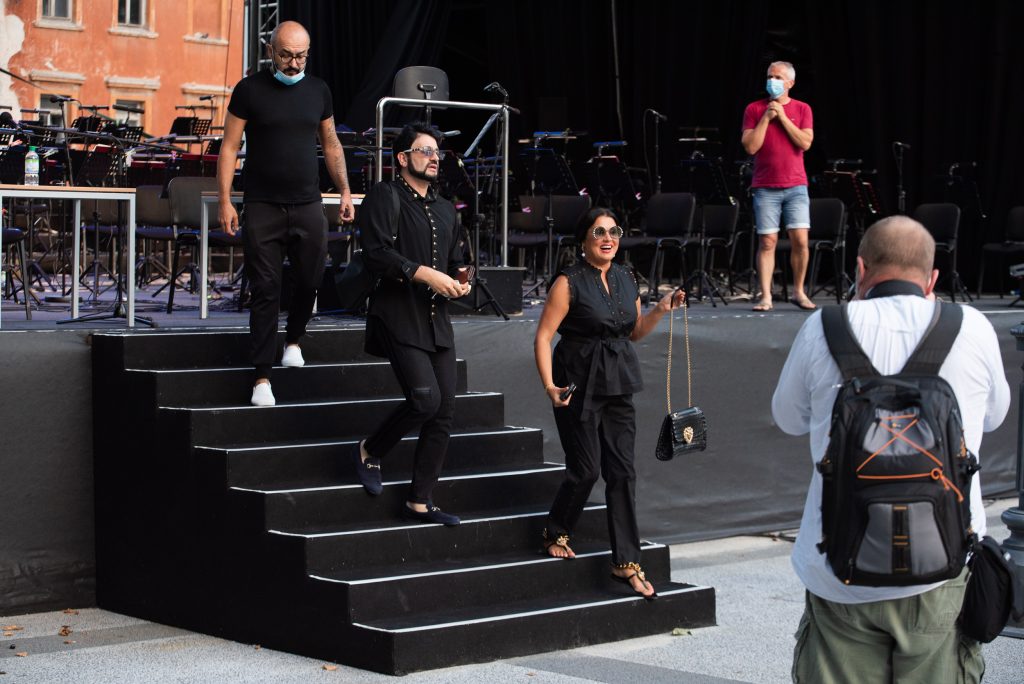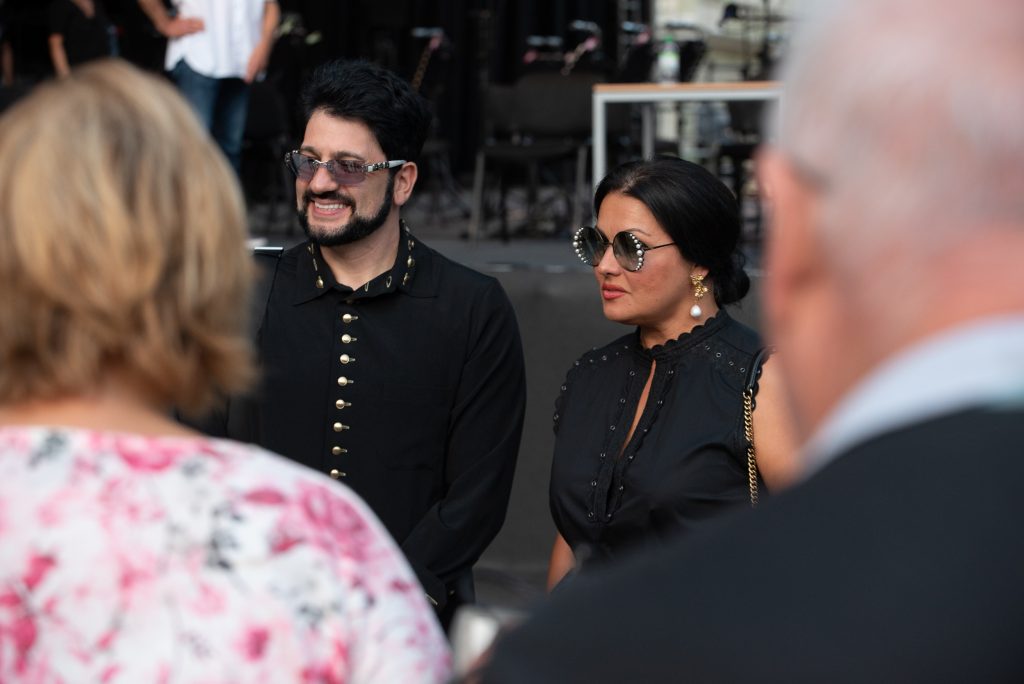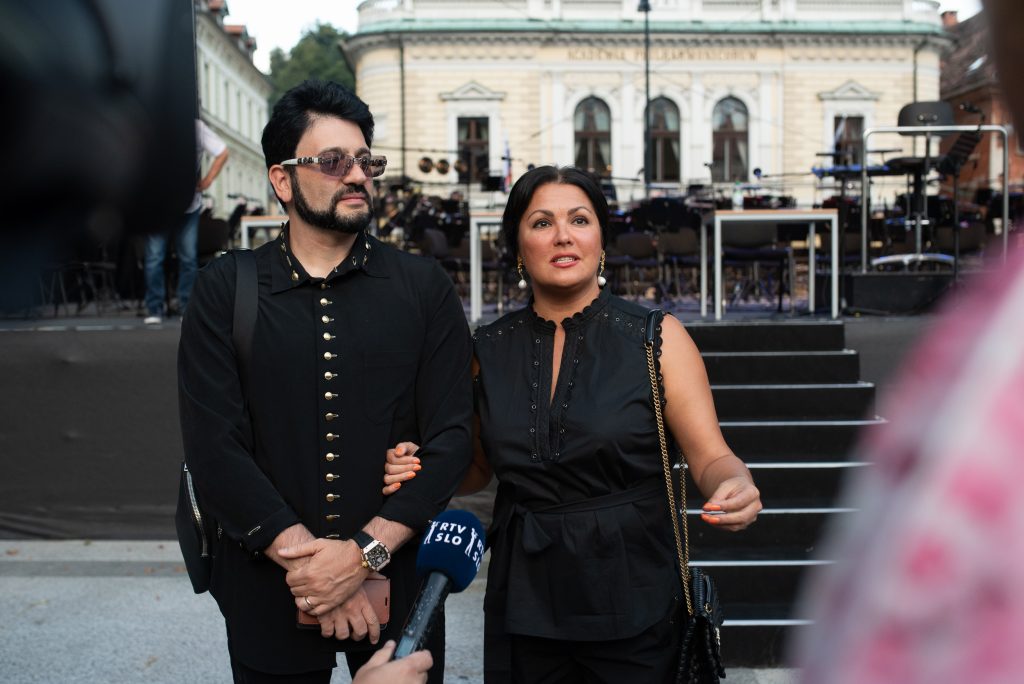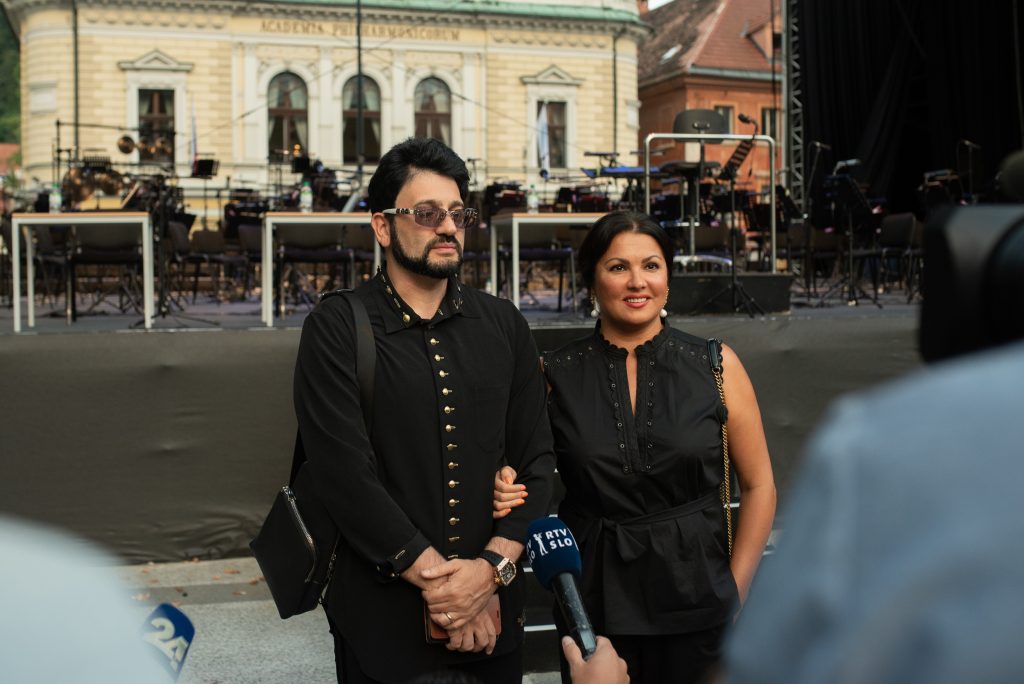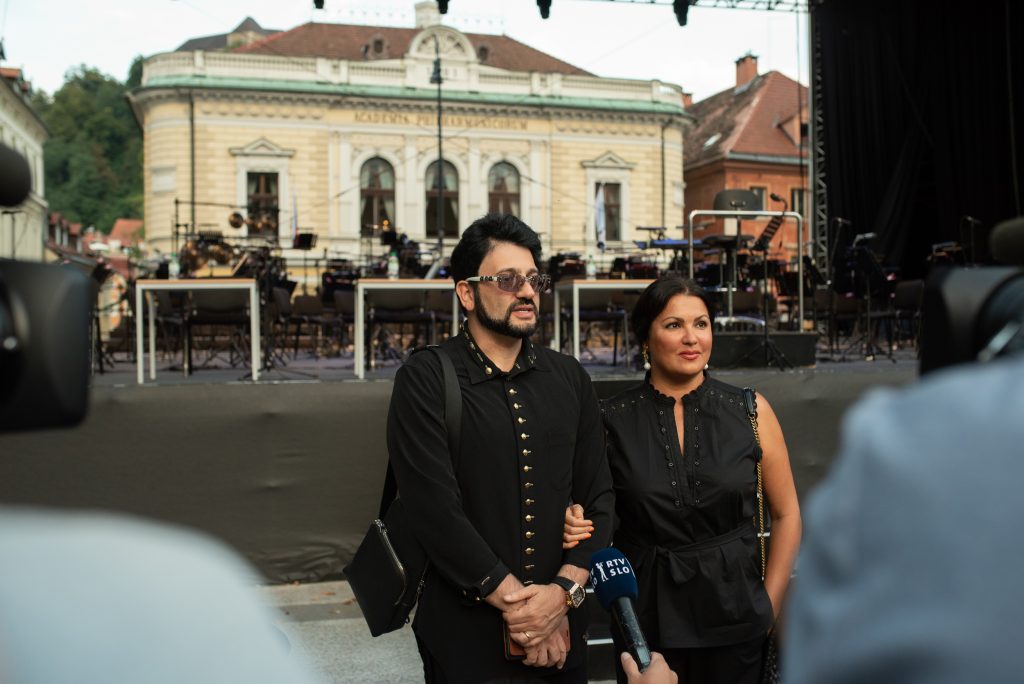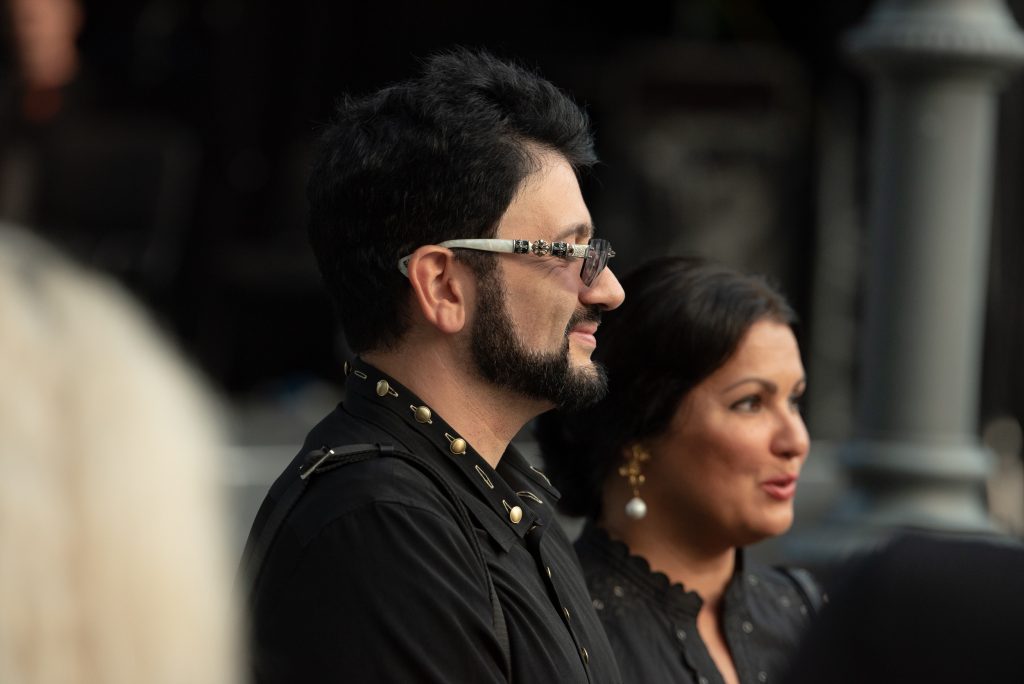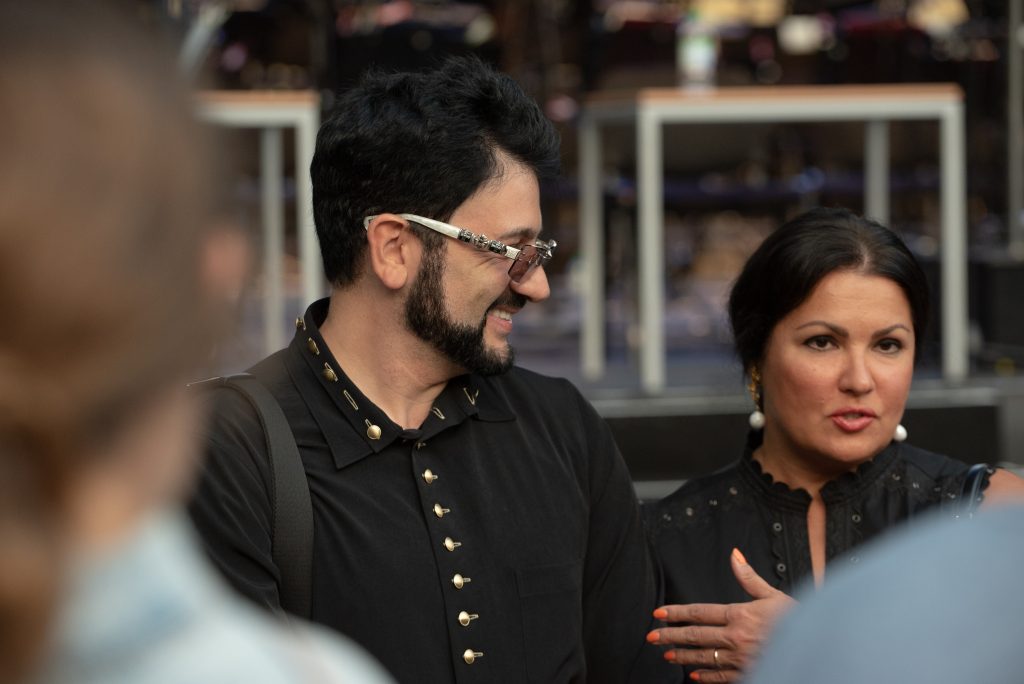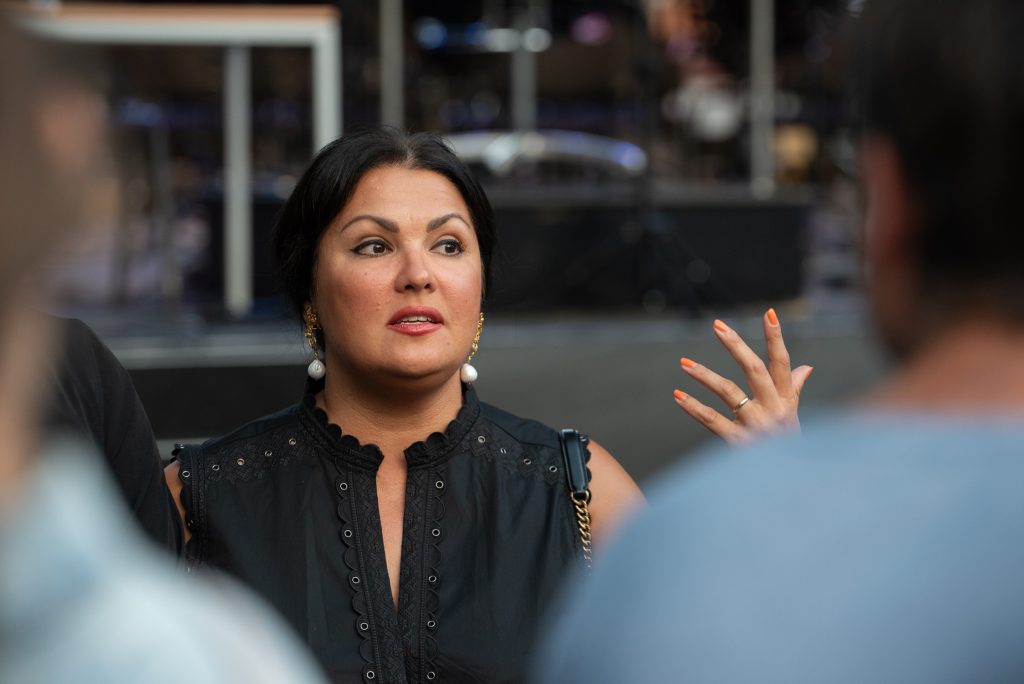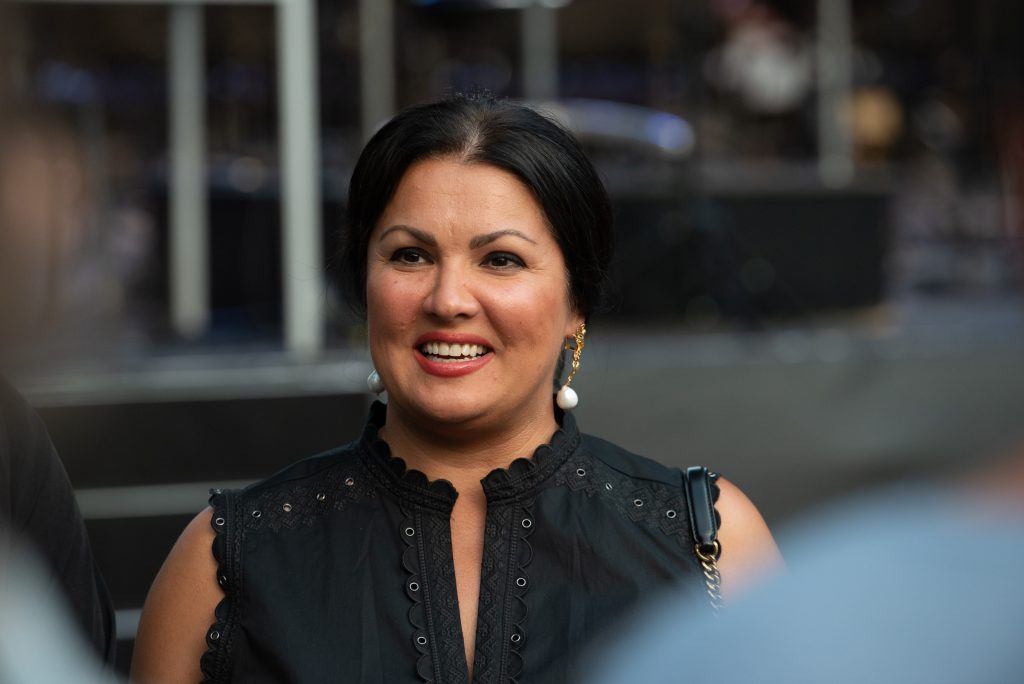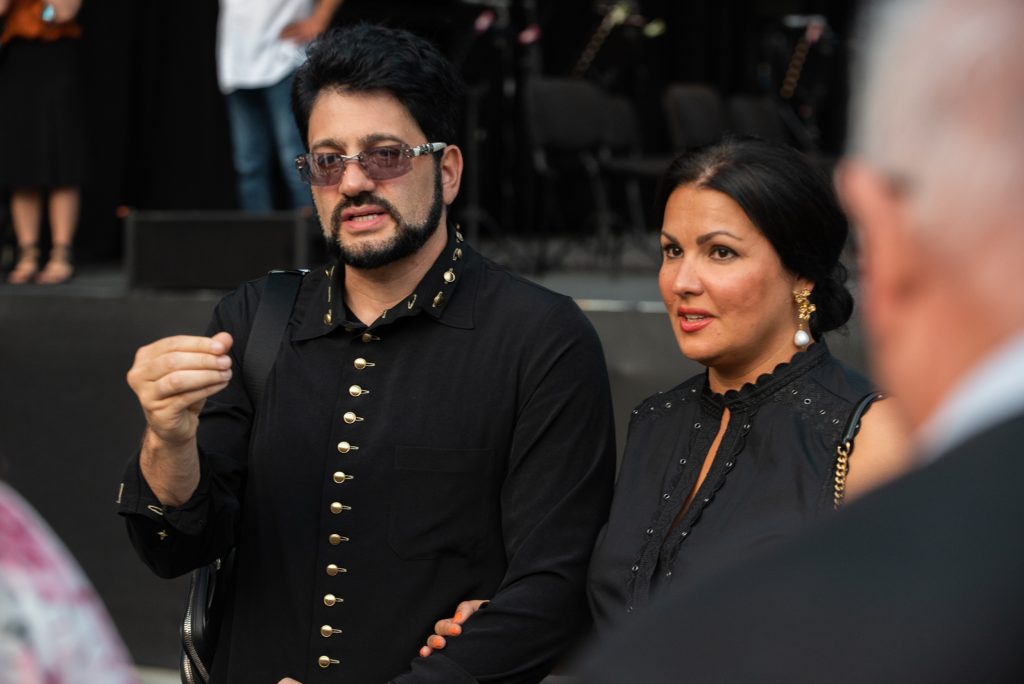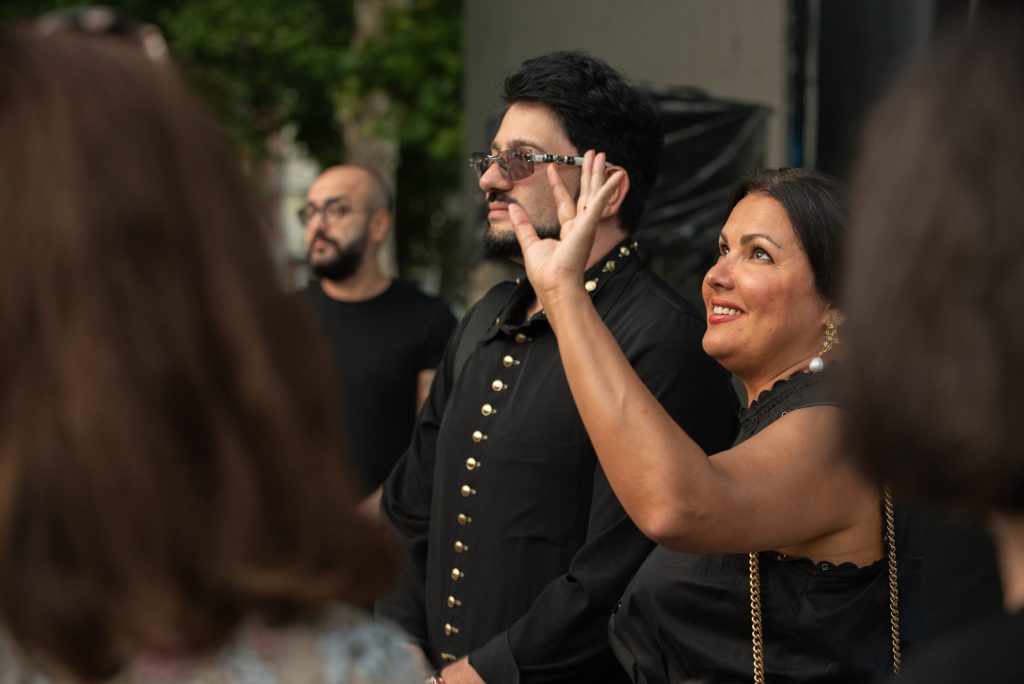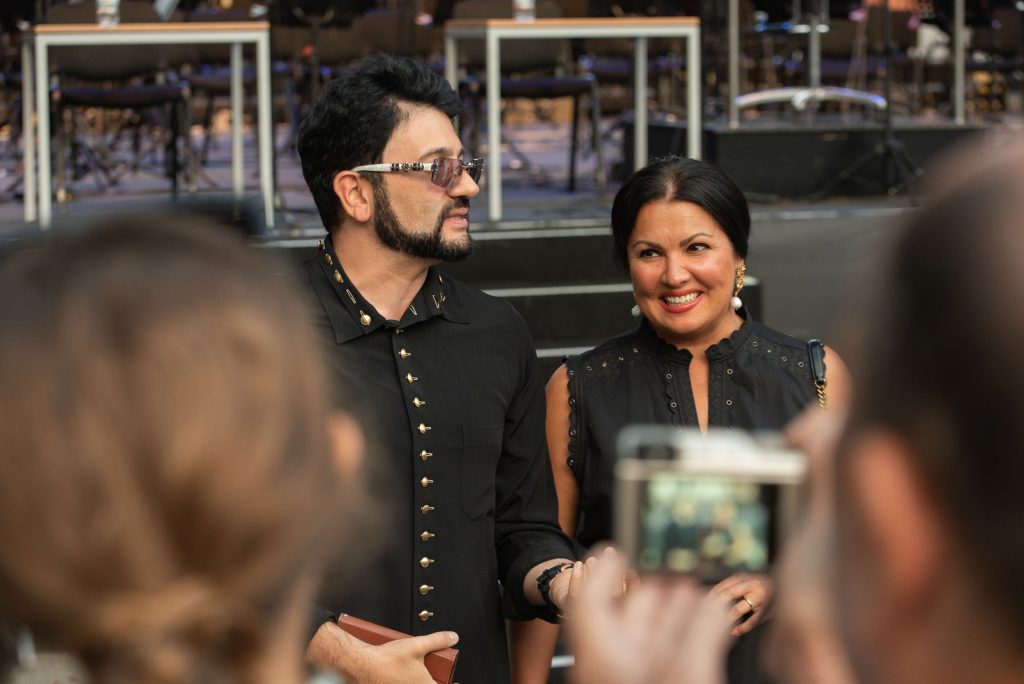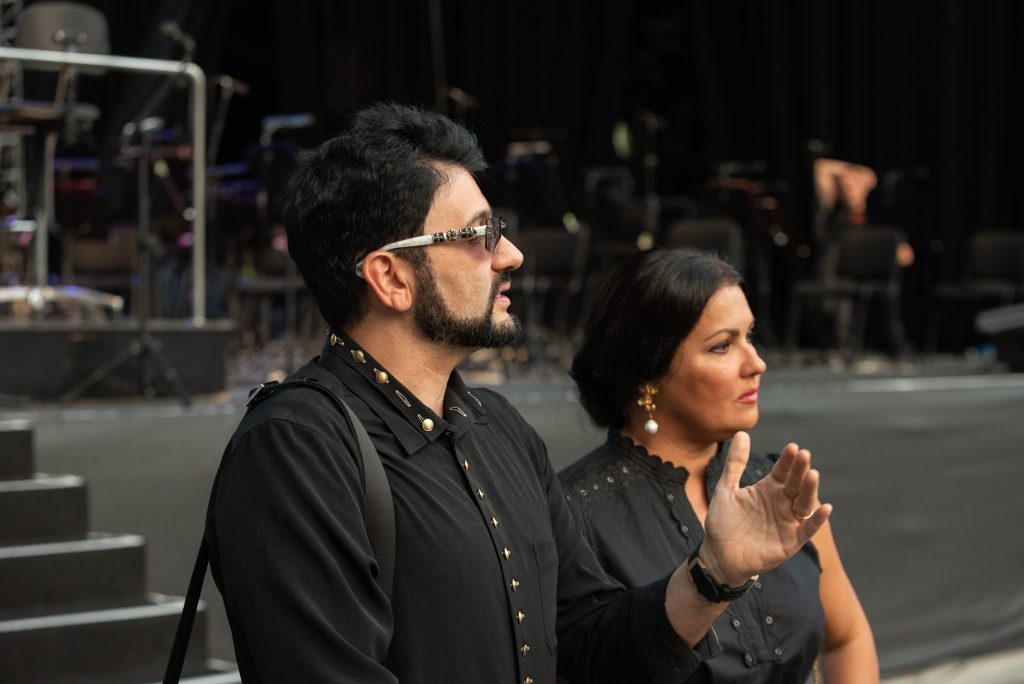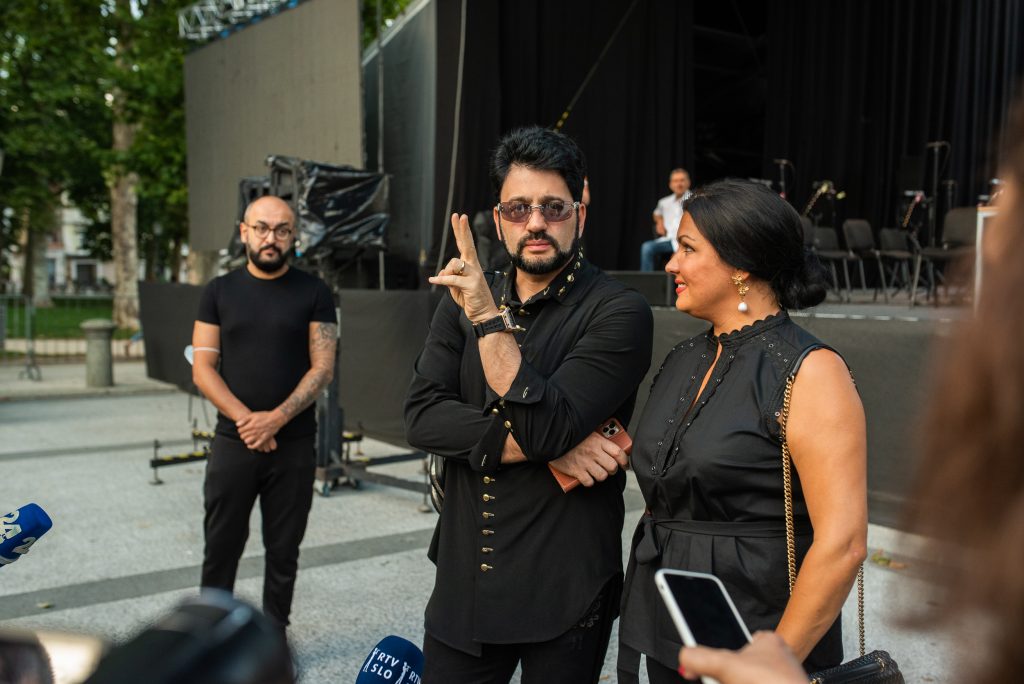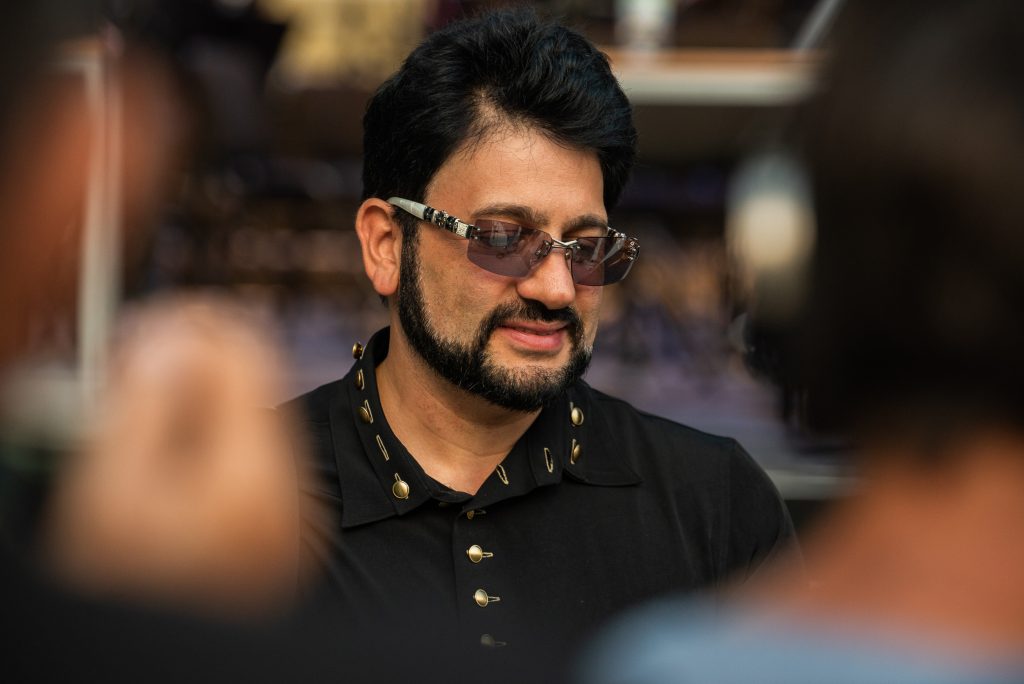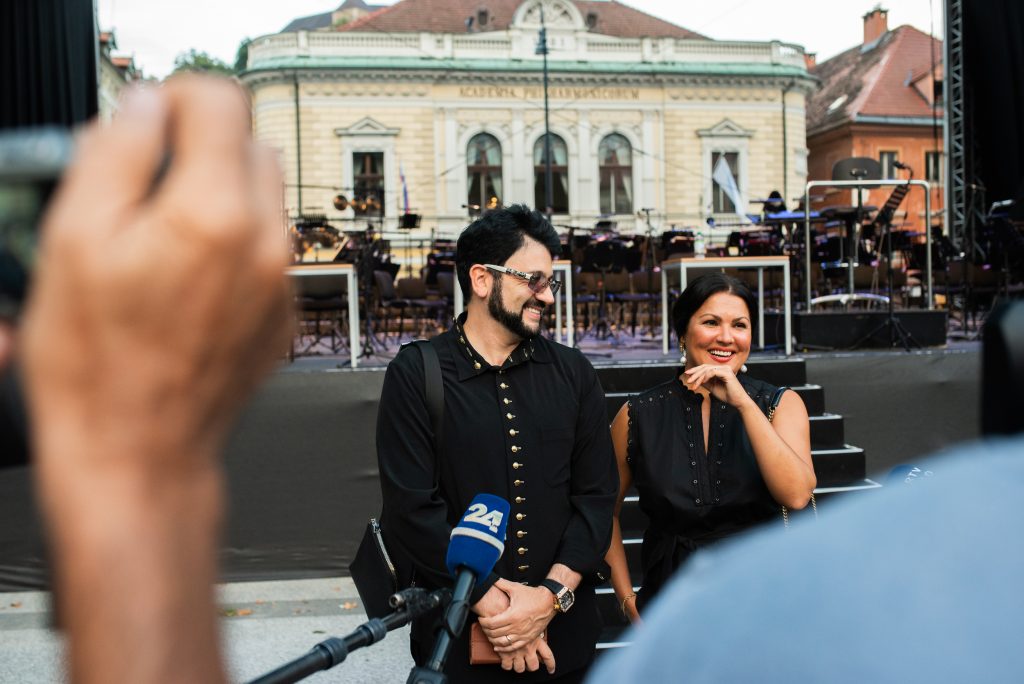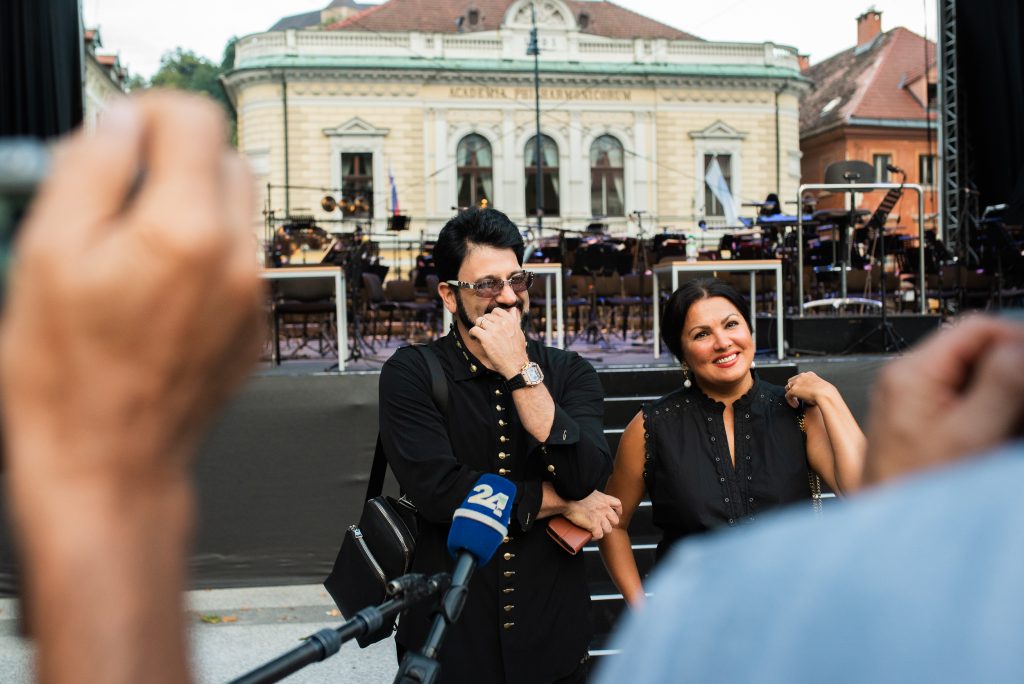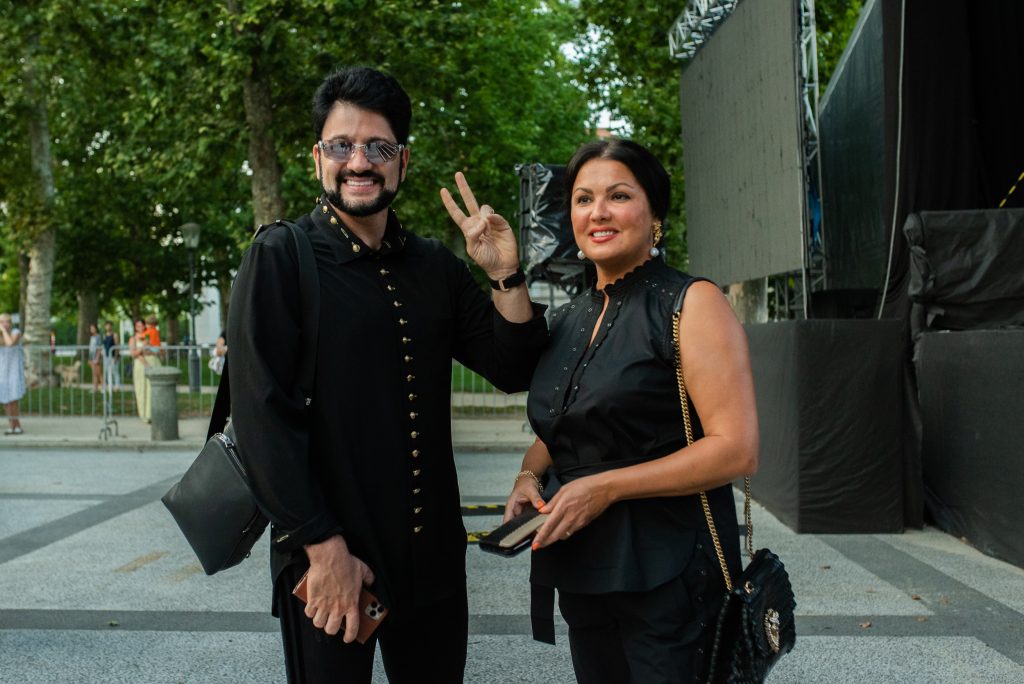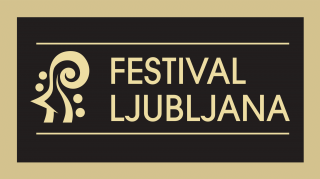What are your memories of our orchestra, the soloists and recording the CD (question for Anna Netrebko)
The orchestra was excellent and we had no particular problems recording the CD. We used a combination of live recordings and studio recordings.
This is your first visit to Ljubljana, is that correct? (question for Yusif Eyvazov)
Yes, that’s right. I was supposed to perform in Ljubljana in July with the Bolshoi Theatre, in the opera The Queen of Spades, but unfortunately it had to be cancelled because of the pandemic. So I’m very happy that I now have the chance to perform in Ljubljana anyway.
For your concert at the Ljubljana Festival you have chosen arias and duets from the operas of Verdi and Puccini and works by French composers, but also Ernesto De Curtis’s popular “Non ti scordar di me”. Does this song have a particular meaning for you?
Yusif Eyvazov: Yes, the title of the song means “don’t forget me”, and that is our message for people now – not to forget us even during this difficult period.
Anna Netrebko: We tour a lot, so we are constantly adapting the programme and changing it to suit the location where we are performing. For Monday’s concert, which will be in the open air, we have chosen cheerful, lighter pieces that are easy to listen to. The concert will start off a little more seriously, but the mood will then get lighter, which I hope the audience will enjoy.
While we are on the subject of open-air concerts, the Arena in Verona is, we know, a special case because it does not use amplification. How is it in other open-air venues where you need amplification? What does that mean for you?
Yusif Eyvazov: Generally speaking, all opera singers prefer performing in indoor venues such as opera houses and theatres because of the better acoustics. It is also the case that the voice you hear through a microphone sounds completely different, so we have to adapt our singing technique. Now, because of the current situation, we are doing a lot of outdoor performances, because in some places audiences of up to 1,000 or 1,300 are already permitted, such as in Naples and Verona, so this is currently the only opportunity to perform for such a big audience, at least until autumn.
Anna Netrebko: Open-air concerts are wonderful because of the time of year and can conjure up a really special atmosphere.
Yusif Eyvazov: That’s true. I think the audience will enjoy sitting under the stars and surrendering to the music.
How has the coronavirus pandemic affected your schedule, both now and in the future?
Anna Netrebko: We’d rather not talk about it. We’ve lost everything.
And yet it does seem that you are performing a lot.
Yusif Eyvazov: After our last concert in Liège on 8 March, all our concerts up to September were cancelled. Then in June some new opportunities came along.
Anna Netrebko: Then they cancelled our concerts up to the end of the year. The majority of theatres are closed and we don’t even know yet whether Covent Garden in London or the Met in New York are going to open at all next year.
Even in the autumn?
Anna Netrebko: The situation for musicians and opera singers is really tragic, but I have the feeling that things have improved slightly in Europe.
Yusif Eyvazov: In autumn we will be returning to our old schedule as originally planned. For example Manon Lescaut in Palermo is going ahead, in a concert version with fewer performers, but we will be performing it in November. Tosca at the State Opera in Munich will go ahead with the majority of the performers, perhaps not the full cast, but still.
Anna Netrebko: If that is cancelled too, that will be another catastrophe for us.
Yusif Eyvazov: Whatever happens, we are ready for anything.
But you still have rehearsals, don’t you? Perhaps online?
Anna Netrebko: I don’t like performing online. I don’t like anything online: not school and not singing.
Yusif Eyvazov: It just doesn’t work.
Anna Netrebko: That’s right. I hope we’ve finished with that type of performance, because nothing beats live performance.
Yusif Eyvazov: We’ve only done two online or virtual performances, one for a Vienna television station and the Met Gala in New York, but we didn’t enjoy it. It’s sad to sing to empty seats.
So given the situation, are you happy to be able to perform in our capital city?
Anna Netrebko: Of course we are, we are very happy, because this is our first concert with this programme since May.
Have you had the chance to explore Ljubljana at all?
Anna Netrebko: Yes, Ljubljana is a very beautiful city. Today we had a sightseeing boat trip on the river and tomorrow we may visit Ljubljana Castle.
The two of you are inseparable both on stage and in private life. What are the advantages of working with someone who is also your life partner?
Yusif Eyvazov: We don’t always perform together, actually, and in operas we usually appear separately, but working together does have many advantages – we can have fun together, travel together and spend time with our son. When we are working separately this can be very difficult, because sometimes we are working in different time zones, which makes it hard to coordinate everything. Although as opera singers we are also used to this rhythm.
Anna Netrebko: But the majority of the time we do perform together, because our voices are very well matched, as you will hear at our concert in Ljubljana.
What do you prefer? Concerts or operas?
Anna Netrebko: I’ve always loved the theatre. I enjoy transforming into a character, putting on the costume and everything that goes with it, although I think that there are also some advantages to concerts, because they give opera singers the opportunity to do a lot more and show what we can do with a completely different programme.
Yusif Eyvazov: It’s also true that performing concerts is a lot more demanding, because we sing arias from different operas and you have to adopt a new character for each one, and sometimes you have to adapt your technique to the character too. From that point of view an opera is a lot simpler, because you put on the costume and then for three hours you are transformed into a character, which is wonderful. Everything that happens in the theatre, including backstage, is simply magical. It’s a completely different experience compared to giving a concert.
You said in one interview that you never rehearse for more than ten minutes at home. Can you tell us how you usually prepare for an important premiere? (question for Anna Netrebko)
When I’m getting ready for a performance I am totally dedicated to preparations and study, but I don’t need hours and hours for this. I only practise at home when absolutely necessary.
Some years ago you recorded an album, Romanza, that combines opera singing with other genres. What do you think about this type of music? What do you like most?
Yusif Eyvazov: That was another completely different experience, but a very enjoyable one, although I can’t promise that we’ll be making more albums like that, because both of us – fortunately – have packed diaries. Perhaps we’ll do it anyway.
Anna Netrebko: That kind of music is very popular and aimed at a wide audience. If we wanted to do something very popular, we’d focus on that type of music, but it isn’t the thing that suits us best.
Yusif Eyvazov: Although if say Sting or Elton John wanted to write a song for us, we would certainly record it [laughs].
How do you keep your voices flexible and stay in shape?
Yusif Eyvazov: We do a lot of sport and other activities. We also try and walk as much as possible.
Anna Netrebko: I think that after the age of about 35 or 40 it becomes much more important to live healthily, because our bodies start to change and we need to be more careful about diet and exercise. That’s something that applies to everybody, not just opera singers.
One last question. How do you see the future of opera? Will it continue to attract the attention of younger generations?
Anna Netrebko: I think it’s wonderful that the younger generation is taking an interest in opera, although maybe now isn’t the right time for this question [laughs]. At this moment it’s hard to make any assessment about the future, given that the present situation is somewhat tragic. But we hope that things will improve soon.
Yusif Eyvazov: Opera has been very badly affected by the current situation, but I’m sure that in a few years it will be back in full swing, and with a new wave of popularity. The popularity of opera has fluctuated over the course of history, but it has always survived and opera singers will always be here.

